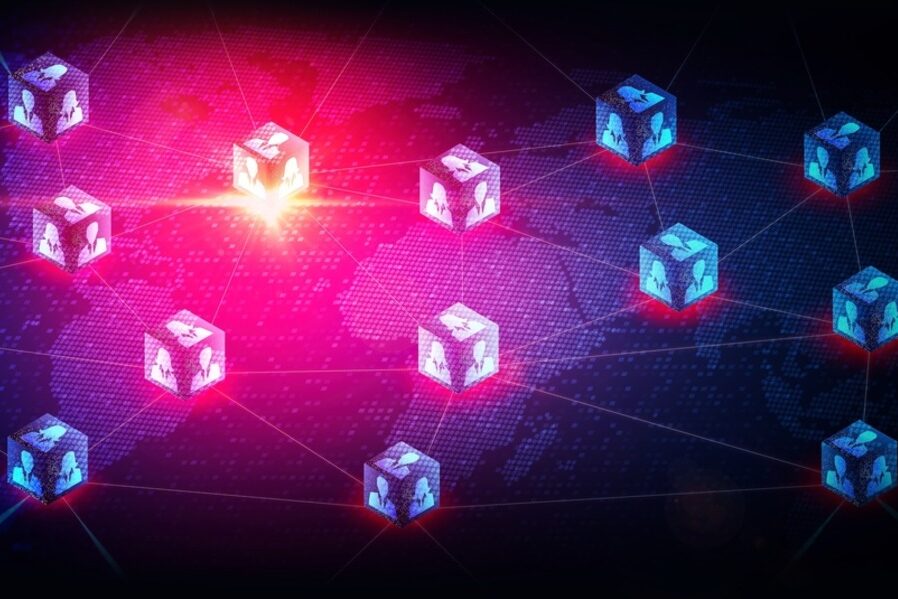Can you envision a means to collaborate with others globally, without knowing each other, setting your own rules, and making decisions on your own? All of this would be encoded on a blockchain. Decentralized Autonomous Organizations (DAOs) are making this happen.
DAO (Decentralized Autonomous Organization) is defined by Wikipedia as an organization whose rules are encoded in a clear computer program, managed by the organization’s members, and unaffected by a centralized authority. No managers are required because the rules are part of the code, eliminating any bureaucracy or hierarchy barriers.
DAOs are now officially a thing. There are currently over 4,000 of them in operation, each with thousands of members and managing increasingly larger pools of assets.
Several of the younger generations and internet users of today are eager to launch social organizations to find a solution to the question of “How can we exchange values in a trusted environment?” Ethereum states that even though blockchain enables automated trusted transactions and value exchanges, internet users worldwide still desire to organize themselves in a “Secure and effective way to cooperate with like-minded people, around the world.”
DeFi
DAOs abound in crypto’s financial models, most notably decentralized finance (DeFi).
DeFi is an emerging model for organizing and enabling cryptocurrency-based transactions, exchanges, and financial services, according to Tech Target. DeFi’s core premise is that there is no centralized authority to dictate or control operations.
DeFi has now locked in the equivalent of over $1 billion in capital and is growing. Over half of this capital is managed by DAOs.
Bitcoin is widely regarded as the first fully functional DAO, as it has pre-programmed rules, operates autonomously, and is coordinated via a consensus protocol.
Beyond DeFi
Beyond DeFi, DAOs are being used in a wide range of applications, including open-source software development, gaming, democracy, energy, freelance work, sports, healthcare, and insurance. DAOs are teaching communities all over the world how to manage themselves.
With this rate of growth, capital inflow, and variety of applications, it can be difficult for even the most seasoned DAO enthusiast to keep up with what is going on in the space. Moreover, it is difficult for those who are new to DAOs to know where to begin participating, experimenting, or investing. There is no centralized source for comparing metrics such as DAO performance, funding, legal status, or community involvement. In the DAO ecosystem, there is an urgent need for tools to aid in sensemaking. DeepDAO now takes on the role.
Read more: Crypto School: What is a Decentralized Autonomous Organization (DAO)?
DeepDao
Assembling DAO data, DeepDao offers DAO analytics that list, track, visualize, and analyze information about DAOs. Market cap, member count, governance engagements, proposals, and discussions, are some examples of metrics.
It is currently difficult to get a complete picture of the DAO ecosystem due to the fragmented nature of the data regarding DAOs. DeepDAO collects DAO data and offers simple analytics on it.
DeepDAO provides fundamental metrics and analytics on the DAO ecosystem, such as the number of proposals, discussions, and active voters, among other things.
Companies that were the first to provide data and analytics on emerging parts of the crypto ecosystem have established themselves as authoritative sources of information and generated millions of dollars in value. DeepDAO aspires to be that for the nascent DAO ecosystem.
We’re still at the start. The DAO platforms are only now becoming more accessible to a wider audience. The user experience (UX) is finally improving, and the concept of pooling resources in a decentralized manner is gaining traction. DAO analytics will play a significant role in this trustless culture because recognizing the community over time is the only way to understand it when you don’t know the people you’re working with. DeepDAO collects and displays these patterns.
What’s next?
DAO analytics is part of the DAO Tools meta trend. Searches for “DAO tools” have increased 3 times over the last 24 months.
DAOs have around $13.7 billion in collective treasury funds. The increasing number of DAOs (and funds held in DAOs) has led to a demand for tools to support this growth.
For more on tech topics, click here.








